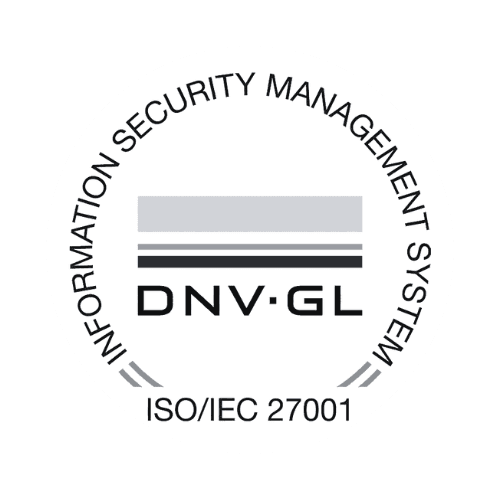Sé el primero en saberlo
Written by AI
What is SaaS and how can it optimize checkout processes?
Software as a Service (SaaS) is a cloud-based delivery model where software applications are delivered over the Internet. Instead of installing software on local computers, companies can access the applications via the Internet. This not only allows for easier use but also enables centralized management of the software.
When optimizing checkout processes, this means that retailers can use checkout software that is constantly updated and offers innovative features. SaaS solutions allow for more efficient checkout processes by reducing staffing needs and shortening processing times at the register.
Definition and Function of SaaS
SaaS refers to software applications that are provided over the Internet and can be used in real time by users at various locations. These applications are typically offered on a monthly or annual subscription basis. SaaS solutions are particularly advantageous as they include continuous updates and maintenance by the provider without the user having to worry about technical details.
In the context of checkout processes, SaaS offers solutions that integrate payment processing, inventory management, and customer analysis. These features are crucial for maximizing efficiency at the register while also collecting valuable customer information.
Benefits of Using SaaS for Checkout Processes
Implementing SaaS in checkout processes offers numerous advantages. First of all, costs are often lower than traditional software solutions. Retailers save significantly on IT costs as extensive hardware or software infrastructure is not required.
Cost efficiency: Reduction of hardware and maintenance costs.
Flexibility: Adapting the software to changing business needs.
Scalability: Easy expansion as the business grows.
Additionally, SaaS allows for faster response times and quicker adjustments to new market conditions, enabling retailers to stay competitive. Another crucial advantage is the ability to analyze data in real time. Retailers can immediately access sales data to make informed decisions based on current trends. This leads to better inventory management and more targeted customer outreach.
Moreover, SaaS solutions promote the integration of various payment systems, offering customers a variety of payment methods. Whether credit card, mobile payments, or digital wallets – the flexibility in payment processing enhances the shopping experience and increases customer satisfaction. This adaptability is especially important in a time when consumers increasingly value convenience and speed.
The Role of SaaS in the Modern Retail Landscape
In today's fast-paced retail landscape, SaaS plays a crucial role. Digitalization has revolutionized how retailers interact with their customers. SaaS solutions facilitate the integration and interaction between various sales and communication channels.
Furthermore, SaaS helps retailers gather relevant data about customer purchasing behavior to better adjust their business strategies. Such data analysis is crucial for understanding individual customer needs and executing targeted marketing measures.
SaaS and the Digitalization of Retail
The digitalization of retail goes hand in hand with the adoption of SaaS solutions. These not only enhance the customer experience but also effectively manage inventories and sales. Integrating SaaS into a retailer's business processes helps automate manual tasks and increase efficiency.
SaaS applications offer a range of features, such as managing online payments and inventory monitoring, all contributing to optimizing checkout processes. They enable smooth transactions and reduce error rates at the register.
How SaaS is Changing Retail
SaaS is fundamentally changing retail by breaking traditional business models and creating new opportunities. Retailers can expand and adapt their services to better meet customer needs. With SaaS, they can be innovative and responsive.
Another aspect is the potential for customer loyalty. SaaS solutions enable retailers to create personalized offers and target customers specifically, leading to higher customer satisfaction.
Additionally, many SaaS platforms offer integrated analytics tools that allow retailers to track customer behavior in real time. These real-time analyses are particularly valuable as they enable retailers to respond immediately to trends or changes in purchasing behavior. For example, a retailer who notices that a particular product suddenly gains popularity can quickly place reorder requests or launch special promotions to meet demand.
Moreover, SaaS solutions facilitate collaboration between different departments within a company. Marketing, sales, and customer service can all access the same data, enhancing communication and increasing efficiency. This integrated approach is especially important in a time when customers expect a seamless experience across all touchpoints, whether online or in-store.
Key Features of SaaS for Checkout Processes
The key features of SaaS solutions are diverse and can significantly contribute to increasing efficiency in the checkout process. These include automation, payment system integration, and sales data analysis.
Automation of Checkout Processes through SaaS
Automation is one of the greatest strengths of SaaS. Checkout processes can be automated, reducing time expenditure and minimizing errors. The software can perform fast payment processing, apply discounts, and capture customer data in real time.
Through automation, cashiers can serve more customers in less time, enhancing customer satisfaction and increasing revenue. Additionally, it alleviates staff pressure and allows for better customer service.
Improving the Customer Experience through SaaS
SaaS solutions provide a range of features that significantly enhance the customer experience. These include faster transactions, easier payment systems, and better visibility of available products. Customers can seamlessly switch between various channels both in stores and online.
Furthermore, retailers can analyze the purchasing habits of their customers using data analytics tools and develop personalized offers. This personalized approach helps strengthen customer loyalty and increase repeat purchase rates.
Another important aspect is the integration of loyalty programs into SaaS solutions. These programs allow retailers to award points or rewards for purchases, encouraging customers to return more frequently. The seamless integration of these programs into the checkout process makes the entire experience easier and clearer for customers, increasing the likelihood that they will complete their purchases.
Additionally, many SaaS platforms offer the ability to collect customer feedback in real time. This often occurs through surveys or feedback requests sent immediately after purchase. Such feedback is invaluable as it helps retailers identify weaknesses in service and make targeted improvements to further enhance customer satisfaction.
Selecting the Right SaaS Provider for Checkout Processes
Choosing a suitable SaaS provider is a critical decision for retailers. There are several key criteria that should be considered in this choice. A competent provider can make the difference between success and failure.
Important Criteria When Selecting a SaaS Provider
When selecting a SaaS provider, retailers should consider several factors:
Functionality: The software should offer all necessary features and tools.
User-friendliness: An intuitive user interface eases onboarding.
Customer Support: Reliable support is crucial for resolving issues.
Security: Data protection and security are of utmost importance.
Considering these criteria allows retailers to choose a provider that meets their specific needs.
Questions to Ask a Potential SaaS Provider
It is important to thoroughly evaluate potential providers. Some relevant questions retailers should ask include:
How often is the software updated?
Is there a trial period for the software?
What is the company’s data backup strategy?
What integration options are available with other systems?
These questions help assess the reliability and flexibility of a provider.
Another important aspect is the scalability of the software. Retailers should ensure that the chosen SaaS provider can keep pace with the growth of their business. This means that the software should not only be suitable for current needs but also capable of covering future requirements. Many providers offer modular solutions that allow for additional features to be added as the business grows or market conditions change.
Additionally, it is advisable to check references and customer reviews. The experiences of other retailers can provide valuable insights into the actual performance of the provider. Often, these feedbacks can also offer hints about potential weaknesses or strengths of the system that are not obvious in a general product description. A provider with a proven track record and positive customer feedback is often the safer choice.
Future Prospects for SaaS in Checkout Processes
The future of SaaS in checkout processes looks promising. As technology continues to evolve, there are numerous trends that have the potential to transform the industry.
Current Trends in SaaS for Checkout Processes
A notable trend is artificial intelligence and machine learning, which are increasingly being integrated into SaaS solutions. These technologies enable better analysis of customer data and the development of individualized marketing strategies.
Another trend is the use of mobile payment solutions that offer customers an even faster and more flexible payment processing experience. Customers today are tech-savvy and expect their providers to offer innovative payment methods.
Potential Developments in SaaS Technology for Checkout Processes
In the future, we may see even greater integration between different platforms that allows seamless transitions from one point of sale to another. The development of blockchain technologies could also enhance the security of transactions.
Another interesting aspect is the growing importance of data analytics and business intelligence. Companies utilizing SaaS solutions can gain valuable insights into their customers' purchasing behavior. This information is crucial for creating personalized offers and increasing customer satisfaction. Furthermore, accurate predictions of future sales figures and trends can lead to more efficient planning and deployment of resources.
Moreover, the user-friendliness of SaaS applications is becoming increasingly important. Providers must ensure that their software is intuitive and easy to understand to enhance user acceptance. Training and support play a central role in equipping retailer employees with the necessary skills to effectively utilize new technologies. The combination of user-friendliness and powerful features will be crucial for staying competitive.








